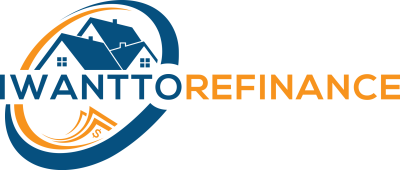Debt relief encompasses various strategies to effectively reduce and eliminate debt.
Common types of debt relief include credit counseling, debt settlement, and bankruptcy.
If you are facing financial hardship, it is advisable to seek professional assistance.
Table of Contents:
1. Understanding Debt Relief
2. How Debt Relief Works
3. Types of Debt Relief
4. When to Consider Debt Relief
5. Avoiding Debt Relief Scams
Understanding Debt Relief:
Debt relief refers to a range of strategies used to pay off, reduce, or eliminate debt more effectively. It includes methods such as debt settlement, debt consolidation, and debt refinancing. The most suitable strategy depends on your specific financial situation, the types of debts you have, and other factors. Professional assistance from debt relief companies or credit counseling agencies is often sought, although some individuals may handle certain strategies on their own if feasible.
How Debt Relief Works:
Debt relief can be implemented in various ways. Some services provide a structured plan to repay debts within a specific timeframe, while others aim to lower interest rates, payments, or overall balances to make them more manageable. Debt relief strategies can include reducing interest rates or payments, consolidating debts for streamlined repayment, refinancing debts for better terms, modifying loan or repayment terms, or reducing balances. In more extreme cases, debt relief may involve filing for bankruptcy, although this option should be carefully considered due to its long-term consequences.
Types of Debt Relief:
Several types of debt relief services are available, each with its own advantages. Here are some common options:
1. Debt Management Plans (DMPs): These programs, offered by credit counseling agencies and debt relief companies, provide a structured path to pay off debts over a specific period. They negotiate lower interest rates or payments with credit card issuers and consolidate payments into a single monthly fee. DMPs can help individuals pay off debts faster and with reduced costs.
2. Debt Settlement: Debt settlement involves negotiating with creditors to reduce the outstanding balance in exchange for immediate payment. While individuals can negotiate directly, many opt for debt settlement companies that handle negotiations on their behalf. Debt settlement companies establish savings accounts where individuals contribute monthly until a settlement offer is reached and debts are settled.
3. Debt Consolidation: Debt consolidation involves combining multiple debts into a single loan, often a personal loan. The consolidation loan is then used to pay off all other debts, simplifying repayment. This strategy can streamline the process, and potentially reduce monthly payments and long-term interest costs.
4. Debt Refinancing: Debt refinancing replaces existing debts with new ones, typically with more favorable terms or lower interest rates. For example, individuals struggling with car loan payments might refinance into a new loan with an extended term, reducing their monthly payment amount.
5. Credit Counseling: Credit counselors provide valuable services to help individuals improve their financial situation. They offer guidance on various financial and debt management topics, help create budgets, provide advice on credit score improvement, and develop customized debt management plans. Credit counseling services are often free, and certified counselors can be found through reputable organizations like the National Foundation for Credit Counseling.
6. Bankruptcy: In extreme cases, bankruptcy may be considered as a debt relief solution. Bankruptcy can eliminate certain types of debts, but it has significant long-term consequences. Filing for bankruptcy should be a last resort, and individuals should seek advice from a financial advisor before taking this step.
When to Consider Debt Relief:
Debt relief may not be suitable for everyone. If you are still accumulating debt, addressing underlying spending problems should be a priority before considering debt relief. Most debt relief companies and credit counselors require individuals to stop using credit cards and loans before enrolling in their programs. Debt relief is more appropriate
if you have stopped accumulating debt but struggle to manage payments, have fallen behind on bills, or are contemplating bankruptcy.
Avoiding Debt Relief Scams:
Unfortunately, scams targeting individuals seeking debt relief are common. It is crucial to be vigilant when seeking assistance for debt problems. Signs of a potential scam include upfront fees, unsolicited cold calls or marketing tactics, and exaggerated claims of reducing debt by unrealistic percentages. If you suspect you have fallen victim to a debt relief scam, report it to the appropriate authorities, such as the Federal Trade Commission, the Consumer Financial Protection Bureau, or your state attorney general's office.


